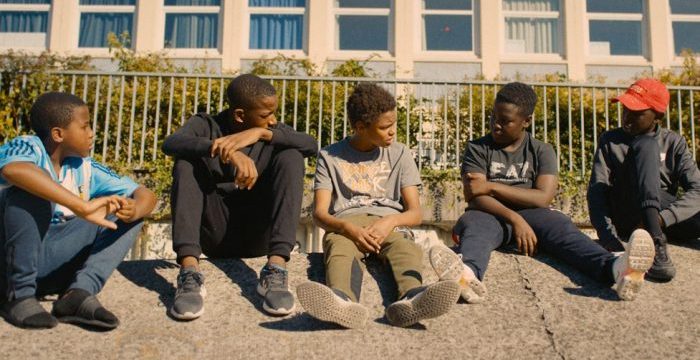An embarrassment of riches is presenting tough choices for the group that decides which French film to submit for a foreign language Oscar.
At midpoint, 2019 has already fielded one of the strongest editions for French movies in decades. Celine Sciamma’s “Portrait of a Lady on Fire” and Ladj Ly’s feature debut “Les Miserables,” both of which debuted to rave reviews at this year’s Cannes Film Festival, are among those vying to be selected. They join Francois Ozon’s “By The Grace of God,” the winner of the Berlin’s Silver Bear Award, as the top candidates.
But more titles could join the list of French Oscar contenders. The National Film Board (CNC), the organization tasked with establishing rules for the selection of French films submitted for Oscar consideration, is revising the guidelines, according to three industry insiders. Most notably, it is now allowing films to have limited, qualifying runs ahead of their official theatrical premiere. This would enable some films that are scheduled for release in the winter to be submitted by the Sept. 30 deadline and considered by the Oscar committee. The limited runs would likely consist of six screenings over a seven-day period, according to one insider. However, some of these details are still being finalized and could change. The previous guideline required movies to be commercially released in France on dozens of screens by Sept. 30.
Going forward, distributors will have until either Dec. 31 or as late as early February to release the submitted films commercially, as long as they have a limited release by the September deadline.
These changes will allow movies that are launching at fall festivals, such as Venice, Toronto and San Sebastian, to be considered by the Oscar committee. The previous rules penalized movies premiering at these festivals by forcing distributors to rush their films to theaters before the early cutoff. That meant that films that premiered at Cannes were ideally positioned for Oscar submission, which is why seven out of the last 10 French candidates debuted at that festival. But the track record has been spotty. Only three of the 10 movies have actually been nominated.
Last year’s disqualification of Olivier Assayas’ Venice premiering “Non Fiction” due to its release date had caused a controversy within the Oscar commission and industry professionals in France. The harshest criticism emanated from Jonathan Sehring, the former co-President of IFC Films and Sundance Selects, who had the U.S. rights to “Non-Fiction” and called the French rules “arcane.” Over the years, several award-winning French films didn’t make it into the race because of France’s stringent Oscar rules. Case in point: The Palme d’Or-winning “Blue Is the Warmest Color,” for instance, was not the French submission in 2013.
The CNC has also revised the make up of its Oscar committee to expand it and make it more balanced. Thierry Fremaux, the artistic director of Cannes Film Festival, is expected to leave the committee and will likely give his seat to another representative of the festival. Newcomers on France’s Oscar committee include Daniela Elstner, the president of Doc & Film International and ADEF, the guild of French sales agents.
Even with the new rules, France faces tough decisions. “Les Miserables,” a searing look at police brutality and urban poverty, feels urgent and politically charged. It also boasts an important backer in Amazon Studios, which acquired U.S. rights to the movie in Cannes for $1.5 million and plans to launch an awards campaign. “Portrait of a Lady on Fire” could also tap into the zeitgeist. The film documents a lesbian relationship between an 18th century artist and one of her subjects, and its story of pre-feminist queer love seems tailor made for the current moment. Neon nabbed domestic distribution rights after a heated fight for the film with Netflix. Ozon’s “By The Grace of God,” an incisive look at the Catholic Church abuse scandal also has a moral immediacy that could vault it to the top of the heap. Music Box Films will release the movie in the U.S.
Regardless of what film gets tapped by the CNC, the foreign film race is shaping up to be one of the most competitive in years. Pedro Almodovar scored rapturous reviews for “Pain and Glory,” a deeply personal look at a filmmaker in the winter of his career. If Spain picks the film for Oscar consideration (always a question with Almodovar’s works), it is expected to be among the five nominees. There’s also Bong Joon-ho’s “Parasite,” a twisty thriller that also has things to say about income inequality. The movie won the Palme d’Or at Cannes and could become the first South Korean film to vie for a foreign language Oscar. Neon, the film’s U.S. distributor, thinks it can contend in other categories, possibly even nabbing a best director Oscar for Bong.
Source: Read Full Article
